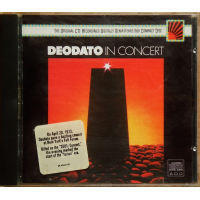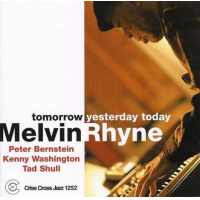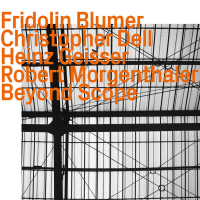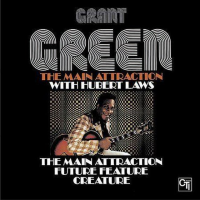Home » Jazz Articles » Liner Notes » Bob Albanese: Time Remembered
Bob Albanese: Time Remembered
"It's a record of feeling which I hope will awaken a listener's private muse," says Albanese, a piano prodigy of Neptune, New Jersey who nowadays concertizes world-wide, accompanies notable artists across genres, teaches and tours from his home in Dobbs Ferry, New York. "The tunes are standards and portraits derived from my personal history."
Exploring both classics and his own originals with comprehensive insight and tender touch, the pianist mixes candor, affection, surprise, awe and humor throughout the album's evocations of life, friends, marriage, pet and his mother. So doing, he animates indelible memories in the moment and converts the feelings he conjures, if not the sources he draws on, into universals.
Unfailingly melodic and rhythmically varied—spiced with one heartfelt, folksy production ("The Place") and one sublimely comic virtuosic turn ("Changes")—TTime Remembered is meant by Albanese to be a work of tribute and healing, a pleasurable listening experience for a broad audience, a soundtrack mostly for restoration, reflection and perhaps introspection. It's the product of a single night-long session during which the pianist-composer tapped creative energies requiring urgent release after the deaths of his mother Margaret Ann Egan, his mentor Clare Fischer and his friend George Mesterhazy.
It is deeply enhanced by the creative sensitivities of his collaborators, especially bassist Gomez, who is essentially a partner in the production. "I molded much of this recording around Eddie's inimitable sound," Albanese says. "It had to be Eddie and only Eddie." Indeed, Gomez contributes another significant dimension to this project. His bowing and plucking is always more than pulse-keeping—it's orchestral and richly interactive. The bassist and pianist have admirable rapport, ably abetted by Willard Dyson—Albanese's go-to drummer—whose propulsion with brushes as well as sticks is flawlessly nuanced.
Eddie Gomez's own mother had died shortly before this date, and his link to the lyrical title track was forged during his 14-year stint in the trio of pianist Bill Evans, its composer. But the magic on Time Remembered exists in the now, not in reconstruction. Which should prompt those who hear it to enjoy their own immanence, that irreducible instant in which sound, amid all other sensory experience, brightens the mind.
How do artists capture and express such immediacy? That's their secret skill. "Time Remembered" is, amazingly, a first take and the first thing Albanese and Gomez ever played together on meeting for the first time in the studio and recording when the red light went on, without benefit of rehearsal. "Isfahan" (which Billy Strayhorn, who wrote it, originally titled "Elf") and "Pensativa," Clare Fischer's signature song, were last minute additions to the program. Both tracks are piano solos, but Albanese credits his left hand-dominant passage at the climax of "Pensativa" to his preceding hours' engagement with his masterful bassist.
After "Time Remembered" and "Isfahan," "El Raton" is a propulsive change of pace, a souvenir from Albanese's years (1989—'93) playing six nights a week with Panamanian flutist Mauricio Smith's Latin dance band at the Rainbow Room atop Rockefeller Center. "Pastels," named by the late pianist and arranger George Mesterhazy, with whom Bob became close while living and laboring in Atlantic City, returns to the meditative mood. Albanese is pleased to repeat Mesterhazy's evaluation of "Pastels": "George said, 'I'm so proud of you. You wrote a modern tune that's not modal or based on a typical chord progression.'"
Like much of Time Remembered, "Pastels" is so deliberately detailed and meticulously performed that it might seem to be through-composed. Albanese, however, believes that the fact it includes improvisation and is open to interpretation should be savored. "A lot of this album could have been orchestrated," he says, "but I think in a way that would have gypped listeners. I want people to hear between the lines."
Between the lines, anyone acquainted with contemporary jazz piano will recognize throughout Time Remembered Albanese's understanding and appreciation of the most widely acclaimed current masters of the form. He claims many keyboard heroes, including Chick Corea, Egberto Gismonti, Oscar Peterson and Chopin besides Clare Fischer—who he admires profoundly, crediting his "heartistic approach—Bill Evans and Herbie Hancock. "Herbie Lix" is an oblique homage, drawn from a motif Hancock extemporized during Miles Davis' fabled 1965 stand at Chicago's Plugged Nickel. "I don't play like Herbie," Albanese says, "but I like the title."
We don't have to listen hard to know Albanese plays only like himself, and pursues his aesthetic without compromise. "Furmina Daza" demonstrates this beyond a doubt. Dedicated to his wife and to the beagle he and she acquired at the start of their marriage, this nine-minute, multi-section piece also alludes to the chase by paparazzi of Princess Diana and concludes with Furmina, the pooch, singing along. Early 21st century jazz contains few compositions comprising such a breadth of references, much less their ultimate harmonization.
But Bob Albanese is a man of many superficially odd yet congruent parts, as is further proved by the final two tracks of Time Remembered. "The Place" is his unique arrangement of an idealized lyric and tune dear to his mother, who sang it frequently (though never in his presence) and just prior to her passing directed him to record it. Through overdubbing, Albanese plays ukulele—an instrument he picked up when residing in Hawaii, and which he carries all the time—melodica and little rhythm instruments as well as singing. "Changes" is his affectionate spoof of music theory, which he studied while obtaining in mid-life two degrees from Manhattan School of Music. With words describing exactly what the music's doing as it happens, Albanese's jest has the devil-may-care wit of, say, Dave Frishberg, while also embodying its message. Bob Albanese included "Changes" in Stirring the Canon, his self-published book of etudes.
"Changes" definitively confounds past and present. What do we hear, the sounds as they change or the words that name those changes? Can we absorb both simultaneously? Maybe—just as when emotions from days gone by arise from a contemporaneous event, we experience past and present both at once. This liminal occurrence happens usually by accident, less often by artistic design. Summon it now, listening to Time Remembered.
Liner Notes copyright © 2026 Howard Mandel.
Time Remembered can be purchased here.
Contact Howard Mandel at All About Jazz.
Howard is a Chicago-born writer, editor, author, arts reporter for National Public Radio, consultant and videographer. Visit Howard at howardmandel.com.
Track Listing
Time Remembered; Isfahan; El Raton; Pastels (Waltz For George); Herbie Lix; Pensativa; Furmina; The Place; Changes (AKA “Jazz Harmony Lesson In A Song”).
Personnel
Album information
Title: Time Remembered | Year Released: 2015 | Record Label: Mayimba Music
Tags
PREVIOUS / NEXT
Support All About Jazz
 All About Jazz has been a pillar of jazz since 1995, championing it as an art form and, more importantly, supporting the musicians who make it. Our enduring commitment has made "AAJ" one of the most culturally important websites of its kind, read by hundreds of thousands of fans, musicians and industry figures every month.
All About Jazz has been a pillar of jazz since 1995, championing it as an art form and, more importantly, supporting the musicians who make it. Our enduring commitment has made "AAJ" one of the most culturally important websites of its kind, read by hundreds of thousands of fans, musicians and industry figures every month.






















